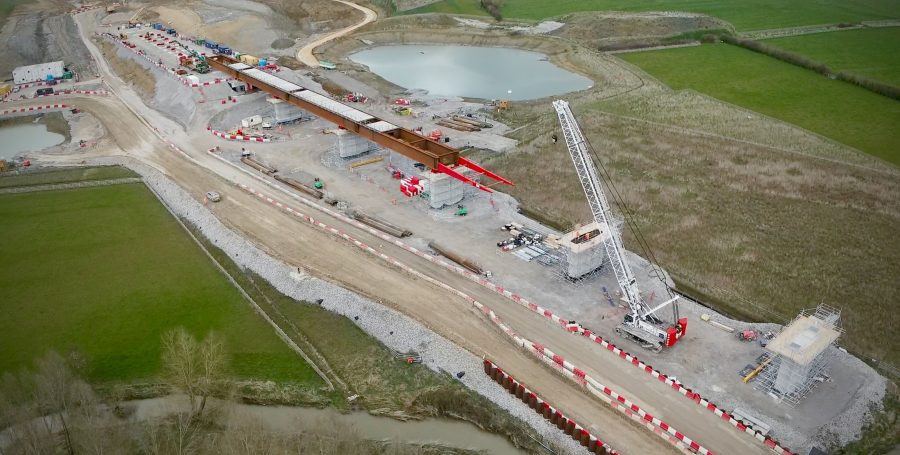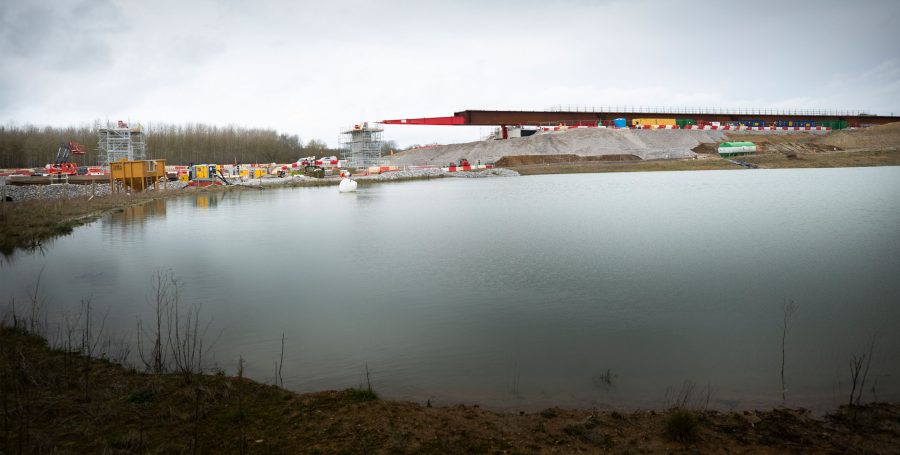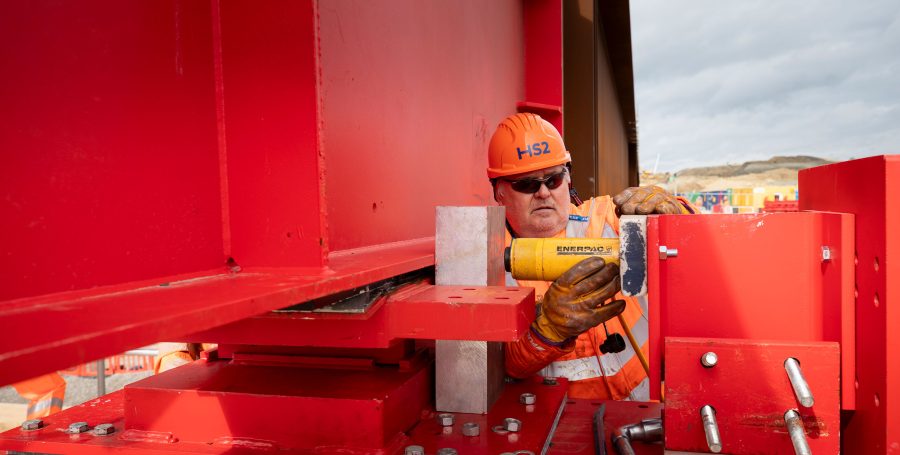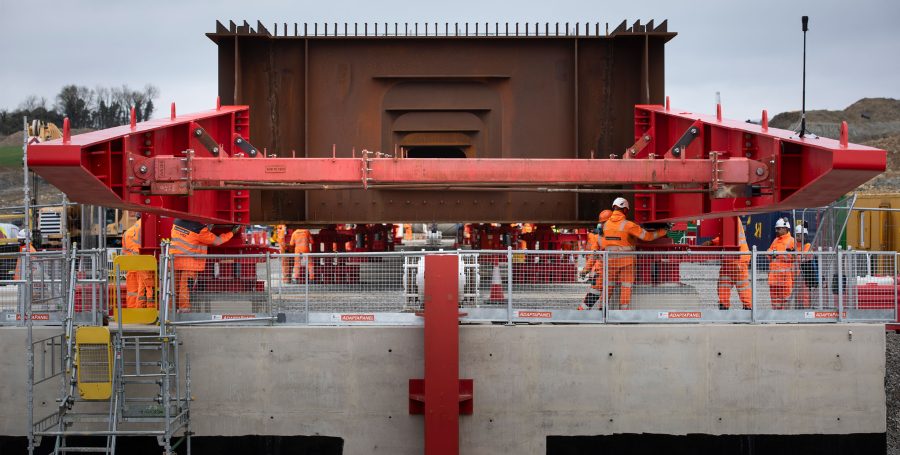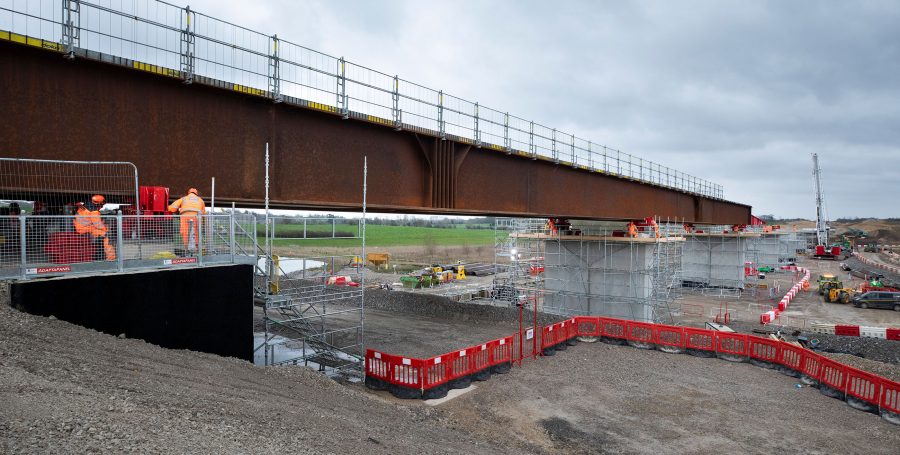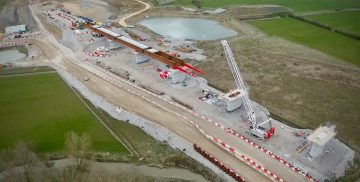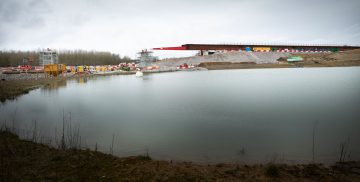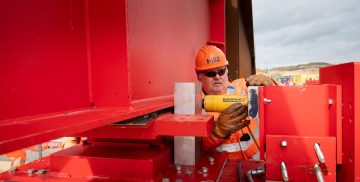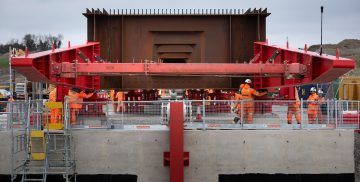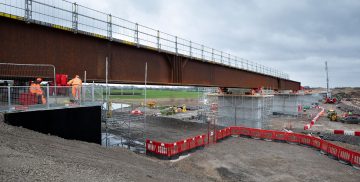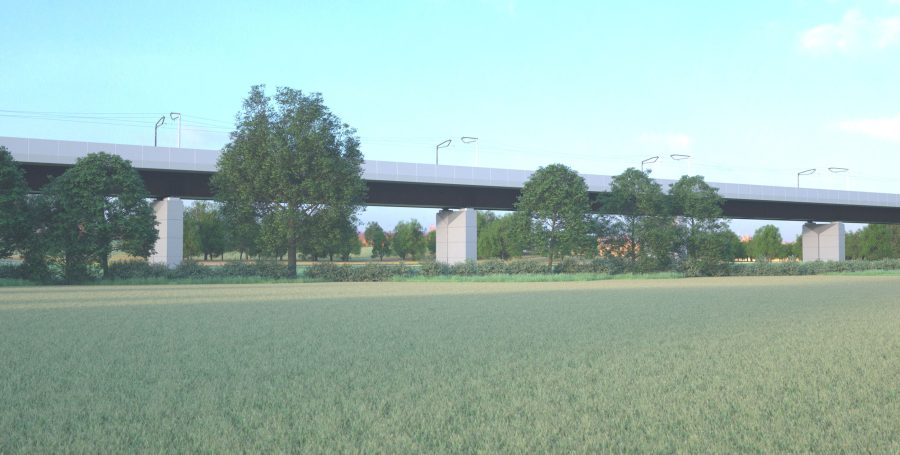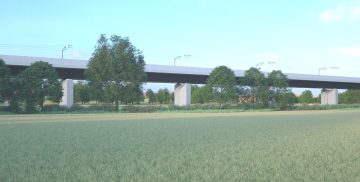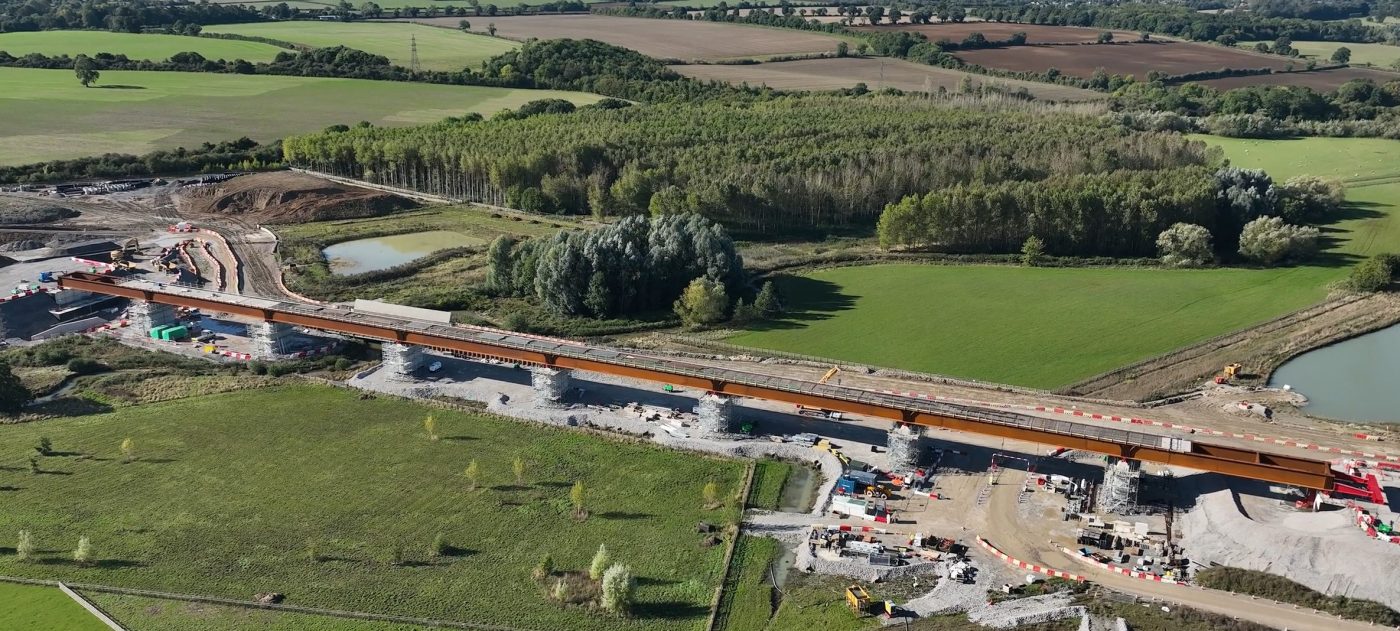
Westbury Viaduct
Set low in the landscape to the east of Brackley, Westbury Viaduct, along with the nearby Turweston Viaduct, cross the floodplain of the River Great Ouse, which passes under the new high-speed railway twice as it meanders through Buckinghamshire and West Northants.
It is one of 50 major viaducts on the HS2 project – which will improve connections between London, Birmingham and the North while freeing up space for more local trains on the most congested southern end of the existing West Coast Main Line into London Euston.
Viaduct construction
Because of the length of Westbury Viaduct the deck was assembled in three stages, with each one pushed out from the north abutment before the next section was attached behind it. This meant that the weight of the deck increased with each push, up from an initial 1,145 tonnes to 2,695 tonnes for the final stage, which was completed in October 2024.
To achieve each deck slide a winch was used to push the deck forward at a speed of around 9 metres per hour, sliding across Teflon pads to reduce friction – a material usually found to the surface of a non-stick frying pan.
With the steelwork now in position, engineers can begin the challenging job of lowering the deck 60cm onto the permanent bearings, which will support the full weight of the structure. The two-month long operation will see the steelwork above each pier carefully lowered 20cm at a time, pier-by pier, until the whole 320 metre long deck settles into its final position.
Viaduct design
The viaduct deck was originally planned to be made from solid concrete beams, but after the early success of Wendover Dean the decision was taken to adopt the double composite approach across more viaducts, including Westbury.
The more efficient deck also allows longer spans and fewer piers needed to support the structure. These changes, alongside the use of lower-carbon concrete and steel, and changes to the foundations allowed the design team to cut the amount of embedded carbon in Westbury viaduct by 60% per cent.
Key facts
- Height: 9m
- Number of piers: 7
- Construction approach: ‘Double composite’ steel beams for strong but lightweight spans.
Keeping you informed
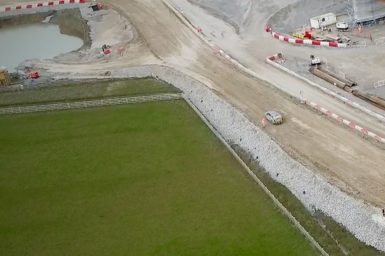
Stay informed about the works
Find information about HS2 works and activities taking place in your area.
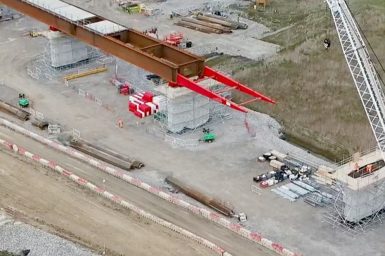
Managing water in your area
Watch our webinar and learn how we monitor water quality and agree working methods.
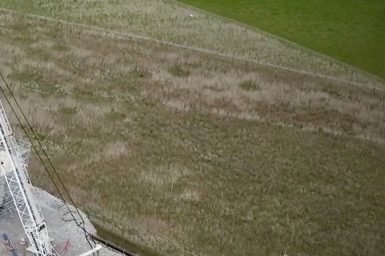
Construction look-ahead
Read our three-month look ahead for associated work in Buckinghamshire and Oxfordshire.

Find out what HS2 means for Buckinghamshire and Oxfordshire
This section provides you with information about HS2 works and developments in your area.
Find out more